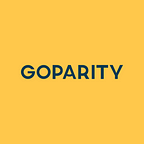Why renewables in Africa are not just about decarbonization
and how “the crowd” can help
Although less carbon in the atmosphere is a good thing in itself, renewable energy in developing countries is about much more than that. Today, we want to tell you why and how you can be part of the change.
Renewables are not just about decarbonization ☀️
13% of the world population has no access to electricity. This means that around 940 million people have no access to safe cooking facilities or light after 6 PM. In Africa alone, 598 million people have to cook on open fires and rely on kerosene or paraffin lamps or candles to light their homes, breathing the toxic smokes they emit.
Solar power is reliable. Many developing countries lack a reliable energy supply. Consequences go from hospitals with already few resources being faced with the power down while performing a medical intervention or local economic development being limited because companies struggle to grow. Locally produced electricity is more reliable than the national grid.
Solar power is cheap. The cost of generating solar electricity is falling and the current prices are already low enough to provide significant cost savings for businesses. Grid parity has been reached in many parts of the world: producing your electricity is already at least as cheap as purchasing it from the grid.
Solar energy time to deploy is smaller. Long-running projects are perceived to be riskier and, hence, more difficult to fund. Renewables are faster, scalable, and cheaper to deploy offering a significant upside to potential investors.
How the crowd can help?🤗
#1 Financing the “not-bankable” projects. “In theory, there has never been a better time for developing countries to install clean energy”. Institutions such as the European Investment Bank or The World Bank intend to increase their green energy financing, offering developing countries cheap loans and grants, and many donor countries “have pledged to help poorer nations switch”. But, In many cases, developing countries cannot translate their demands into “bankable projects”, having the biggest challenge in getting funding. Mobilizing money for good can contribute to closing the financing gap.
#2 Increasing public understanding. The decisions we make as consumers are key: decisions such as switching to more efficient lighting systems, choosing a greener supplier, investing in renewable energy projects, or just raising awareness. Improving public understanding of renewable energy in emerging markets, by providing examples of alternative financing solutions for businesses, and proving the profitability for other investors, the crowd can make the change. In the long-term, it may lead to other larger financiers channeling investment into important markets that were perceived as risky before.
Our first solar energy project in Africa ☀️
We envision a renewable and decentralized energy system, in which energy is accessible and affordable to all and used most efficiently. So far, we have funded more than 30 sustainable energy projects. This week, we launched our first one in a developing country — SolarWood Hospital, in Eswatini (former Swaziland).
This project will be used to co-finance the energy independence and stability of supply of the Good Shepherd Mission Hospital in Eswatini, by installing a renewable energy solution that uses biomass and solar power to provide the hospital with hot water and electricity (“SolarWood”). SolarWood will reduce the Hospital’s emission of greenhouse gases by 70%, avoiding the emission of 1.350,3 tonnes of CO2 a year (the equivalent to planting 61.377 trees). The cost reduction on the energy bill will allow the Hospital to improve the quality of the healthcare services provided. Also, the project will create at least ten women jobs locally.
The second edition of Parity Talks 💬
16th of July — 19.30 CET (Madrid, Berlin) | 18.30 GMT (Lisbon, London)
Register on Facebook | Register on Linkedin | Add to Calendar
Next week, Nuno will be talking about International Cooperation and Humanitarianism with the two amazing guests below.
Bianca Flamengo. International Development. Portuguese-Guinean. Bianca has worked with the United Nations Population Fund, the Netherlands Development Organisation, the Delegation of the European Union to Guinea-Bissau, the World Food Programme, and the Columbia Center on Sustainable Investment. Currently, she’s working in the International Fund for Agricultural Development as a Policy Analyst.
Gustavo Carona. Doctor without borders. Humanitarian.
Portuguese anesthesiologist and a member of the organization Médecins Sans Frontières for the last 10 years, Gustavo has worked as a volunteer in more than ten humanitarian missions in places such as Mozambique, The Democratic Republic of the Congo, Pakistan, Afghanistan, Syria, Iraq, Burundi, Yemen, Gaza strip, South Sudan, always in a context of war.
We are a BoP Lab 🙌🌍
The BoP Global Network is a membership-based organization consisting of a vibrant community around the globe who believes that the answers to some of the greatest challenges facing humanity can be found through inclusive and sustainable innovation and entrepreneurship. BoP Global Network has established BoP Labs in 34 countries so far. These labs promote research and development of entrepreneurial business methods to help the poor improve their quality of life. We are a proud partner in Portugal
This month on “Meet The Team” 👩👨
Luís. Co-founder & CFO. Coming from the banking industry, Luis is fascinated with the potential of alternative finance as a catalyst for change! His favorite project so far was Academia de Música, an example of how a small investment can have a huge impact on a small community for education!
The news we want to share 📰
The Beam
Living in a world that is fuelled with 100% renewables is doable!
CEO of SolaraidJohn Keane
Electricity — you can’t fight poverty without it
Sustainable Development Report
Eswatini Country Profile
The Smithsonian Magazine
Scientists Propose a New Name for Nature in the Time of COVID-19: The ‘Anthropause’
Spread the word and increase your impact 💬
